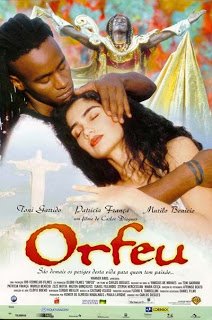“Inconsequential”

| None | Light | Moderate | Heavy | |
|---|---|---|---|---|
| Language | ||||
| Violence | ||||
| Sex | ||||
| Nudity |
What You Need To Know:
ORFEU does not make full use of its Christian allusions, nor of its shots of the famous statue of Jesus Christ that overlooks Rio and the poor neighborhood where Orfeu decides to stay. There also does not seem to be all that much chemistry between the two leads. Finally, the movie contains foul language, sexual immorality and nudity, making it unsuitable for children
Content:
(RoRo, CC, LL, VV, S, NN, AA, DD, M) Romantic worldview of doomed lovers, plus protagonist’s father is a church-going Christian who encourages his son to ask God for help, there are some Christian allusions in the story & the movie shows a couple magnificent shots of the statue of Jesus Christ which overlooks Rio de Janeiro in Brazil, but movie’s ending is not God-centered; 42 obscenities & 5 profanities; moderate urban violence such as mob justice against pedophile, woman accidentally shot to death, police break up riot, man impaled by spear, & protagonist takes violent revenge; implied fornication; upper & rear male & female nudity; alcohol use & drunkenness; smoking, drug dealing & cocaine use; and, jealousy & vigilante justice.
More Detail:
There are several interesting Christian elements in this colorfully photographed Brazilian movie. For example, at one point, Orfeu’s father, who’s a church-going Christian, warns his son that God will want an accounting of his life because He’s given Orfeu so much success. At another point, the father urges Orfeu to ask God for help. Despite this, ORFEU does not make full use of such Christian allusions in its story, nor of its shots of the famous statue of Jesus Christ that overlooks Rio and the poor neighborhood where Orfeu decides to stay. Thus, Orfeu remains essentially unaffected by his father’s religion, and the movie retains a romantic worldview in which society seems to blame for the tragedy that unfolds.
Also, there does not seem to be all that much chemistry between the movie’s two romantic leads. This is deadly when it comes time for them to have the conventional bedroom scene. Finally, this movie contains significant foul language and some sexual immorality and nudity, making it unsuitable for children.


 - Content:
- Content: 

